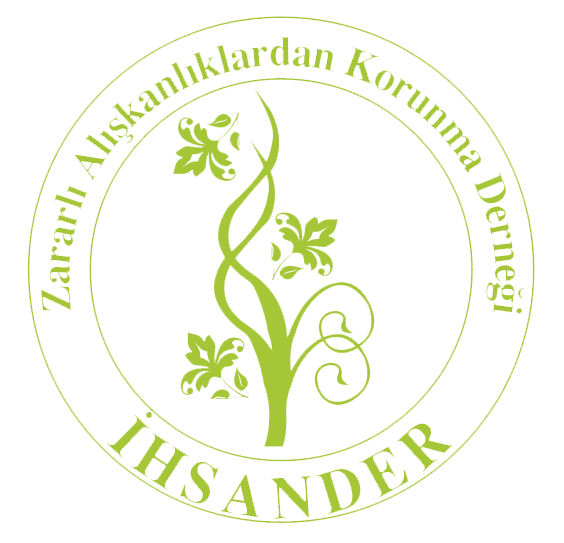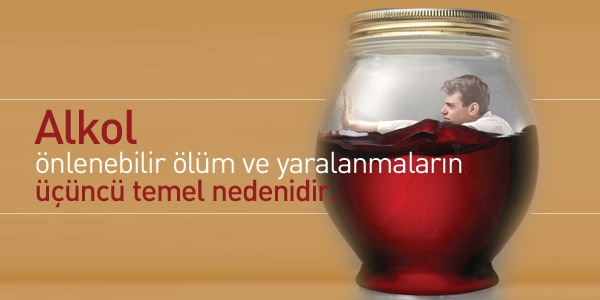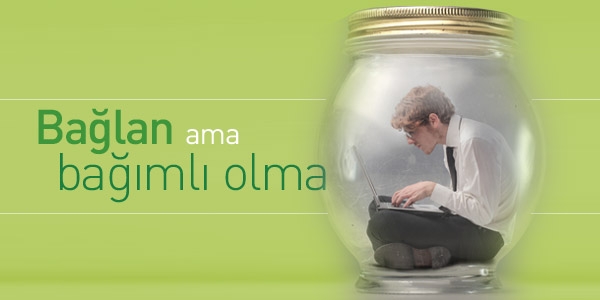Alcohol addiction

Smoking tabacco addiction
27 December 2017
Drug Addiction
27 December 2017What is alcohol addiction?
There are many types of alcohol. One type of it called ethanol is consumed as alcoholic drink. Alcohol consumed as beverage causes many diseases. In addition, alcohol weakens will-power, a person loses his/her control and becomes defenceless against drugs. 57 percent of drug addicts use alcohol. Abstaining from alcohol has a defensive role in protection from other addictions.
A person who overconsumes alcohol continually, who wants to consume it despite the deterioration in his/her physical, mental and public health and who needs to be treated is called alcoholic. 76 million of 2 billion alcohol users in the world are addicted to alcohol. In Turkey, 1 million 800 thousand people loses his/her life in a year. The age of first alcohol consumption has declined up to 11 in Turkey. The more the age of first consumption declines, the more a person becomes tended to be addicted in his/her coming years.
The way alcohol leads in body
Alcohol reaches cells through gastric surface. While 20 percent of it mixes with blood from gastric, 80 percent of it mixes with blood from intestine. The next step is liver. The priority of liver is to produce energy by consuming fatty acid. However, it changes when it comes to alcohol. Ordinarily fatty acid expected to be consumed begins to gather in liver and liver becomes fatty. Alcohol reaches heart, lung and bronchus with blood.
Alcohol reaches brain from lung in minutes and causes drowsiness in brain. After three minutes of its inclusion in body, it reaches all cells of the body. If the amount of alcohol passes a certain level, it leads coma and even death.
Symptoms of alcohol addiction
- increasing amount of alcohol to get the same effect which a person is accustomed to, inadequacy to maintain the same accustomed feeling and effect (improving tolerance)
- Deprivation symptom, psychological or physical problems and relief after alcohol consumption of users who have deprivation symptom as a result of reducing the amount of alcohol or quitting alcohol.
- Consuming alcohol more in amount and time than s/he has planned
- Spending so much time in supplying, consuming alcohol or trying to get out of the effects of alcohol.
- Reducing or leaving social, vocational or leisure activities because of alcohol consumption
- Unsuccessful attempts to quit or control alcohol consumption
- Continuing alcohol use despite the knowledge of the harmful effects of alcohol
Health problems that alcohol brings about
- Esophageal, laryngeal, gastric and pancreas cancer
- Deterioration in brain functions like thinking proper, determining and acting
- Sleeping disorders, headache and eye impairment
- Heart and blood circulation diseases
- Obstruction in blood clotting
- Acute liver failure
For treatment
It may take time to admit alcohol abuse and growing alcohol addiction because alcohol is a psychoactive substance which has social consumption. While many alcohol users continue to be in the level of social consumption, later it turns into alcohol addiction. People who use alcohol, who want to be treated and look for solution or their relatives can apply to psychiatry clinics and Alcohol and Drug Addiction Treatment Centres (AMATEM in Turkey).
- Treatment should be chosen according to needs of patients
- The goal is sobriety. This is important for distinctive diagnosis of accompanying psychiatric disorders and their treatments.
- Long-term observation after treatment is essential. Even if a patient stays at hospital for a long time, it is possible for him/her to begin to use alcohol again if s/he is not observed. Regular psychological consultant or attending help groups reduces the risk to start it again.
- Recurrences are seen frequently in first six months.
- Family of an alcoholic person is a significant factor in treatment. Partners’ propulsion exemplified that s/he will not live with him/her as long as s/he continues to consume it can be sufficient reason to attempt to quit alcohol.
- If an alcohol addict refuses to receive an original treatment programme, doctors should not give alcoholic patients up and should not wait for psychosocial crisis that s/he will accept treatment after.
Driving when you are alcoholic!
Alcohol decreases the rate of oxygen in blood. A brain which is not able to receive sufficient oxygen begins to lose its function. As a result of lacking fear with the effect of alcohol and growing self-confidence, a driver becomes tended to take risks and at the same time the possibility to have accident increases. Even if a person keeps the rules in daily life, this condition can change under the influence of alcohol. With the diminution in balance, visual, auditory and cerebral functions, muscle control and attention decrease. The reaction time of drivers extends in case a being or a vehicle suddenly comes out in front of him/her and this increases the possibility to have an accident.
Attention!
Alcohol passes to blood of babies from mothers’ blood by placenta. The amount of alcohol of a mother is same in her baby’s blood. Alcohol used during pregnancy causes problems such as low or dead births, growth deficiency, social development and mental retardation in babies.
Do you know?
- Every year 3,5 million people loses their life resulting from reasons related to alcohol.
- Alcohol is the third main cause in the whole world of avoidable deaths and injuries.
- Property damage caused by alcohol is much more than the income obtained from alcohol.
- Failure in education, tendency to crimes, health problems related to alcohol increase in proportion to alcohol consumption.
Whats should be done?
- Help an addicted person see his/her manners’ results.
- Be sincere and do not forget that alcohol problem is a disease.
- Get informantion about addiction treatment methods.Tell him/her about these.
- Be ready for help acceptance of an addicted person.Meet with treatment centre in advance, fulfill neccessary actions.In this way, you can remove excuses which can hinder him/her to act.
What should not be done?
- Stay away from some approaches such as hate, hostility, mistreatment, cursing and giving a moral lesson and do not forget you are trying to help him/her.
- Hiding or trying to dissimulate it from people will lead problems to deepen.
For mmore information click to tbm.org.tr and alkolgercekleri.com


